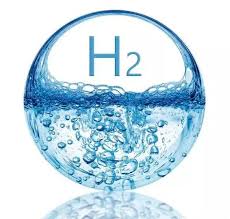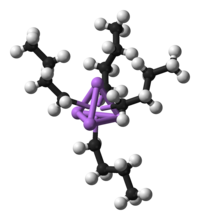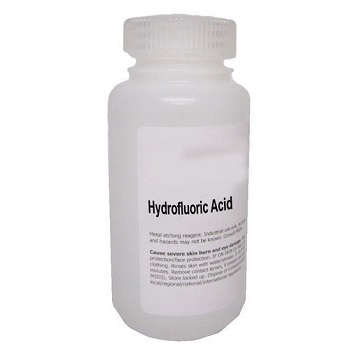Hydrogen-Hazard and Toxicity
Sep 9,2019
Description
Hydrogen,H2, is a tasteless,colorless, odorless gas that may be liquified by cooling under pressure. Hydrogen is used in welding, in the production of ammonia, methanol, and other chemicals, for the hydrogenation of oil and coal,and for the reduction of metallic oxide ores.It is obtained by the dissociation of water and as a by-product in the electrolysis of brine solutions. Molecular hydrogen at ambient temperature is relatively innocuous to most metals.However, atomic hydrogen is detrimental to most metals.

Major Hazards
Highly flammable gas; explosion hazard in the presence of heat, flame, or oxidizing agents. Hydrogen gas is very explosive when mixed with oxygen gas and touched off by a spark or flame. Many hydrides of hydrogen are dangerous and can become explosive if not stored and handled correctly. Many organic and hydrocarbon compounds are essential for life to exist, but just as many are poisonous, carcinogenic, or toxic to living organisms.
Toxicity
Hydrogen is practically nontoxic. In high concentrations this gas is a simple asphyxiant, and ultimate loss of consciousness may occur when oxygen concentrations fall below 18%. Skin contact with liquid hydrogen can cause frostbite.
Flammability and Explosibility
Hydrogen is a highly flammable gas that burns with an almost invisible flame and low heat radiation. Hydrogen forms explosive mixtures with air from 4 to 75% by volume. These explosive mixtures of hydrogen with air (or oxygen) can be ignited by a number of finely divided metals (such as common hydrogenation catalysts). In the event of fire, shut off the flow of gas and extinguish with carbon dioxide, dry chemical, or halon extinguishers. Warming of liquid hydrogen contained in an enclosed vessel to above its critical temperature can cause bursting of that container.
Reactivity and Incompatibility
Hydrogen is a reducing agent and reacts explosively with strong oxidizers such as halogens (fluorine, chlorine, bromine, iodine) and interhalogen compounds.
Storage and Handling
In particular, hydrogen cylinders should be clamped or otherwise supported in place and used only in areas free of ignition sources and separate from oxidizers. Expansion of hydrogen released rapidly from a compressed cylinder will cause evolution of heat due to its negative Joule-Thompson coefficient.
Accidents
If large amounts of hydrogen are inhaled, move the person to fresh air and seek medical attention at once. In the event of a leak, remove all ignition sources and allow the hydrogen to disperse with increased ventilation. Hydrogen disperses rapidly in normal open environments. Respiratory protection may be necessary in the event of a release in a confined area.
Disposal
Excess hydrogen cylinders should be returned to the vendor. Excess hydrogen gas present over reaction mixtures should be carefully vented to the atmosphere under conditions of good ventilation after all ignition sources have been removed.
- Related articles
- Related Qustion
- What does hydrogen do to the human body and what are its sources? May 27, 2024
Hydrogen gas is gas is very rare in the Earth's atmosphere (1 ppm by volume) because of its lightweight, which enables it to escape from Earth's gravity more easily than heavier gases.
- Hydrogen:Chemistry,Preparation,Uses Feb 20, 2023
Under normal conditions on Earth, elemental hydrogen exists as the diatomic gas, H2. Yet, hydrogen gas is very rare in the Earth’s atmosphere (1 ppm by volume) because of its light weight, which enables it to escape from Earth’s gravity mor
n-Butyllithium (abbreviated n-BuLi) is an organolithium reagent. It is widely used as a polymerization initiator in the production of elastomers such as polybutadiene or styrene-butadiene-styrene (SBS). Also, it is broadly employed as a str....
Sep 6,2019Organic ChemistryHydrofluoric acid (HF) is an aqueous solution of hydrogen fluoride gas. At room temperature, it appears as colorless transparent to light yellow smoke liquid with pungent odor. It has a specific gravity of 0.98 which is slightly lighter tha....
Sep 9,2019Inorganic chemistryHydrogen
1333-74-0You may like
- Hydrogen gas
-

- $48.00 / 1KG
- 2023-05-04
- CAS:1333-74-0
- Min. Order: 1KG
- Purity: 99
- Supply Ability: 2tons
- Hydrogen
-

- $1.00 / 1ASSAYS
- 2023-04-17
- CAS:1333-74-0
- Min. Order: 1ASSAYS
- Purity: 99%
- Supply Ability: 100ton
- Hydrogen gas
-

- $0.00 / 1KG
- 2021-09-07
- CAS:1333-74-0
- Min. Order: 1KG
- Purity: Above 99%
- Supply Ability: 10000kgs






